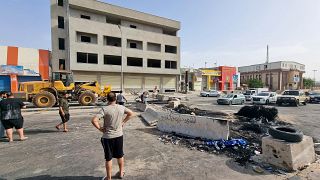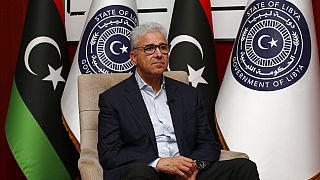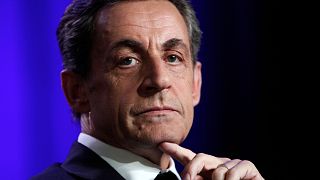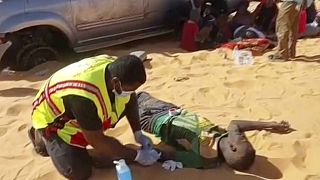Libya
An attempt by one of Libya’s rival prime ministers to seat his government in the capital of Tripoli triggered clashes Tuesday between competing militias, forcing the newly-appointed premier to leave the city.
The development underscored the fragility of the situation in the war-wracked country while the two rival prime ministers blamed each other for the escalation.
Prime Minister Fathi Bashagha’s office said he had arrived in Tripoli with a number of Cabinet ministers early Tuesday - three months after his appointment to lead an interim government.
The move was likely to fuel more tensions between Libya’s rival administrations and in the morning, local media reported clashes between different militias and rival forces in central Tripoli and elsewhere in the city.
The Tripoli-based government of embattled Prime Minister Abdul Hamid Dbeibah slammed Bashagha, describing Tuesday's developments as an armed group's desperate attempt to spread terror and chaos in the Libyan capital - a reference to Bashagha.
Both governments reported that at least one man was killed by gunfire and five others were wounded in the clashes.
In a televised address, Dbeibah said elections were the solution. "There is no future without elections. As for the extension and coup project, it committed suicide politically, and today its death certificate has been officially issued," he said.
A Western diplomat in Tripoli said Bashagha entered the city accompanied by the Nawasi Brigade militia but they faced stiff resistance from militias loyal to Dbeibah.
Another militia, known as the 444 Brigades, mediated between the rivals and facilitated the withdrawal of Bashagha, according to the diplomat, who demanded anonymity to speak about the events.
Bashagha, a former interior minister, was named prime minister by the country’s east-based parliament in February. But Dbeibah, a wealthy businessman, has refused to step down, insisting he will hand over power only to an elected government.
Dbeibah was appointed last year in a U.N.-led process, mired with alleged corruption and bribery, to lead the country through elections in December that never took place. Both men hail from the powerful western city of Misrata.
The latest violence is likely to undermine ongoing talks in the Egyptian capital between the east-based parliament and the High Council of State, an advisory body from western Libya, on constitutional amendments for elections.












01:50
UN urges renewed political and climate action in Libya amid humanitarian and governance crises
Go to video
Pix of the Day: May 15, 2025
02:03
Libya hosts African volleyball championship
02:35
Sudanese Refugee Children Find Hope in Libyan School
Go to video
Libyan leaders call for an inclusive political process
Go to video
Libya devalues currency for first time in four years amid fiscal strain